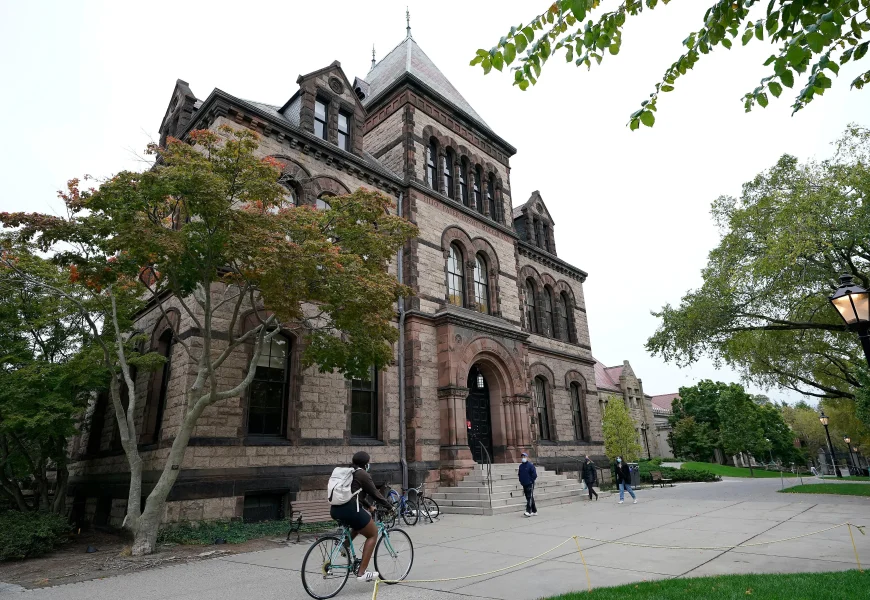WASHINGTON (AP) – The White House is asking nine major universities to commit to President Donald Trump’s political priorities in exchange for more favorable access to federal money. It asks the schools to accept the government’s priorities on admissions, women’s sports, free speech, student discipline and college affordability, among other topics.
Trump asks 9 colleges to commit to his political agenda and get favorable access to federal money
WASHINGTON (AP) – The White House is asking nine major universities to commit to President Donald Trump’s political priorities in exchange for more favorable access to federal money.
Universities were asked to sign a “Compact for Academic Excellence in Higher Education” committing them to adopt the White House’s vision for America’s campuses. It asks the schools to accept the government’s priorities on admissions, women’s sports, free speech, student discipline and college affordability, among other topics.
Signing on would give universities priority access to some federal grants, but government money would not be limited solely to those schools, according to a White House official who was not authorized to publicly discuss the plan and spoke on condition of anonymity. Colleges that agree would also have priority access to White House events and discussions with officials.
The compact, obtained Thursday by The Associated Press, asks universities to accept the government’s definition of gender and apply it to campus bathrooms, locker rooms and women’s sports teams. It asks colleges to stop considering race, gender and a wide range of other student demographics in the admissions process and to require undergraduate applicants to take the SAT or ACT.


